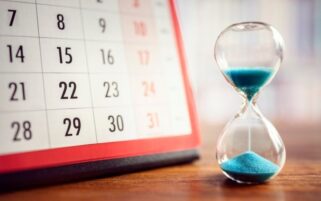With workload pressures in general practice high, getting a good night’s sleep is more important than ever, says Sheela Hobden.
The stress and anxiety created by the Covid-19 pandemic has adversely affected sleep. Although it could be argued the two are related with a causal relationship in both directions, stress is a known trigger for insomnia.
In a study of almost 2,500 adults, completed in April 2020, 58% reported they were dissatisfied with their sleep, and 40% reported a decreased quality of sleep since before the pandemic. Given the pressures placed on general practice since April 2020, including increased workload due to the vaccination campaign, it’s safe to assume the stress among practice staff has not significantly reduced.
Sleep affects how negative and lonely we feel, it balances our emotions, boosts our performance and memory, influences our creativity and even how much we eat. It’s a powerful ‘free’ tool at our fingertips.
One of the first things to go when you are lacking sleep is self-awareness. This means that we often do not even recognise the tiredness until it’s too late.
Given its importance for our daily lives, it’s important to evaluate our sleep and just how much of it we’re getting?
Many of us find caffeine helps us to stay awake in the day, helping us get through the constant long hours. With its quarter-life however, much of it will still be in our system as we try to sleep. Add to that late night email checking, maybe the lure of social media scrolling, the ‘odd‘ glass of wine or ’midnight snacks‘, we really are heading for a sleep ‘nightmare‘. All of this has an impact on the quality and quantity of your sleep.
We know sleep is critically important, so what can we do to help get a good night? Here are a few tips:
- Exercise, food and drink: get the body physically tired, then eat at least two hours before bed. Cut the caffeine, or at least after lunchtime. Avoid alcohol and sugary foods.
- Blue light and data: stop using electronic devices at least two hours before bed.
- Sleep hygiene: set a routine that tells the body it is time to sleep, with regular bed and wake times.
- Temperature: lower your core body temperature at bedtime, for example heat up your feet with a hot water bottle.
- Noise: earplugs are advised to minimise the risk of disturbance.
- Light and dark: a blackout blind can do wonders.
For more, check out my Sleep blog post or read Matthew Walker: Why We Sleep.
Sheela Hobden is a Coach at bluegreen Coaching. Following her own mental health battles, she now coaches individuals, runs training sessions and speaks at conferences. She has a real passion for helping medics and healthcare professionals take as much care of themselves as they do their patients. She is also a Mentor Coach and Coach Supervisor. She has a PGCERT in Business and Personal Coaching, holds PCC member status with the ICF and is CIPD qualified. She challenges herself with ultra distance running and Ironman. Find her at www.bluegreencoaching.com or swimming in the sea, in Poole, Dorset. Sign up to her newsletter for more.



